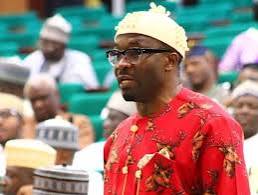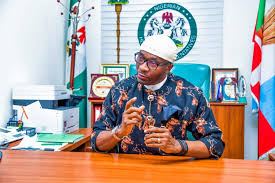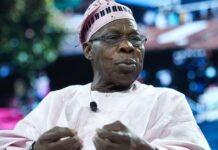The Deputy Speaker of the House of Representatives, Hon. Benjamin Okezie Kalu, has shed light on the Nigerian government’s strategies to improve education during the 3rd Ordinary Session of the 6th Parliament of the Pan-African Parliament in Johannesburg, South Africa. Kalu’s address highlighted several key initiatives aimed at transforming Nigeria’s education system, aligning with the African Union’s 2024 theme of education as a catalyst for economic development.

Increased Funding and Scholarships
Kalu emphasized the Nigerian government’s commitment to boosting education through increased funding for schools and scholarships. He noted that these financial commitments are part of a broader effort to provide quality education for all Nigerian students. The government’s support extends beyond basic education to higher education, ensuring that financial constraints do not hinder academic potential.
Student Loan Scheme
A significant legislative achievement underscored by Kalu was the passage of the Student Loan (Access to Higher Education) Act in 2023. This act, which was operationalized after President Bola Ahmed Tinubu’s assent, aims to facilitate access to credit facilities for higher education. Kalu explained that the student loan scheme is designed to ensure that every Nigerian student has the opportunity to pursue higher education, regardless of their financial background.
Educational Continuity and Technology Integration
Kalu also highlighted efforts to ensure educational continuity during crises and leverage technology for remote learning. He pointed to the recent issuance of an Open Distance eLearning License to MIVA Open University by the National Universities Commission (NUC), allowing the institution to offer online classes. This move is part of a broader strategy to embrace educational technology and provide flexible learning options for students across the country.
Lifelong Learning and Vocational Training
In addition to formal education, Kalu underscored the importance of lifelong learning opportunities. He mentioned initiatives such as vocational training and adult literacy programs that are being championed to equip citizens with practical skills necessary for the evolving economy. Kalu’s office has sponsored draft legislation to institutionalize a national apprenticeship scheme, which has already passed its second reading in the House of Representatives. This scheme aims to provide Nigerians with essential skills to thrive in a dynamic economic environment.
Inclusive Education
Kalu stressed the need for inclusive education, particularly for individuals with physical disabilities. He called for educational systems that are accessible to all, ensuring that no one is left behind. Additionally, he advocated for an African model of learning, tailored to the unique dynamics of the continent, to ensure that educational methods are relevant and effective.
Legislative Input in African Union Budget
Beyond national education reforms, Kalu called for the democratization of the African Union and the inclusion of the legislative arm in the budget process of the Union. He argued that legislative input is crucial for ensuring that educational policies and initiatives are effectively funded and implemented across the continent.
Hon. Benjamin Okezie Kalu’s address at the Pan-African Parliament session highlighted the Nigerian government’s multi-faceted approach to improving education. From increased funding and scholarships to student loan schemes and technological integration, the government is taking significant steps to transform the education system. Additionally, initiatives for lifelong learning, vocational training, and inclusive education underscore a comprehensive strategy to equip all Nigerians with the skills and knowledge needed for economic development. Through these efforts, Nigeria aims to build a resilient and inclusive education system that can meet the challenges of the 21st century.




